Ditapis dengan
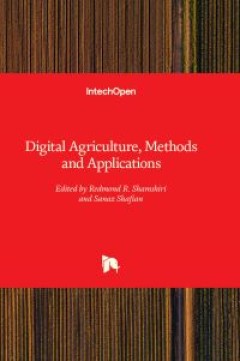
Digital Agriculture, Methods and Applications
Digital technology has helped researchers and growers to embrace the uncertainties involved in different aspects of crop production via a sense-process-act paradigm that is referred to as Digital Agriculture. The ultimate objective of this concept is to optimize the food production process and increase efficiencies. To achieve this, a combination of methods, tools, and software is used to colle…
- Edisi
- -
- ISBN/ISSN
- 978-1-80355-464-8
- Deskripsi Fisik
- 170 hlm.
- Judul Seri
- -
- No. Panggil
- -
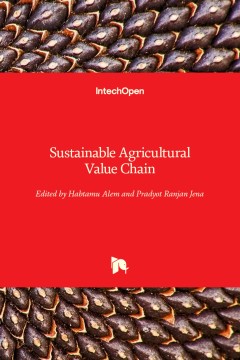
Sustainable Agricultural Value Chain
The book discusses scientific, technical, and sociological aspects of sustainable agricultural value chains, focusing on coffee and tea production. The book advocates a value-chain strategy and highlights the importance of tracking the effects of climate change. Increasing the amount of value-added products via irrigation is critical to combating climate change and achieving sustainable develop…
- Edisi
- -
- ISBN/ISSN
- 978-1-83969-757-9
- Deskripsi Fisik
- 124 hlm.
- Judul Seri
- -
- No. Panggil
- -
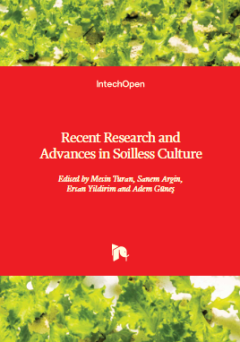
Recent Research and Advances in Soilless Culture
Due to the world’s increasing population, the demand for food is rapidly growing. There is a real concern that we are headed toward a food crisis. Land for farming is dwindling, leading to the need to develop alternative production methods. One of the most promising is soilless agriculture, which refers to growing crops, particularly horticultural crops, in different growing media or in subst…
- Edisi
- -
- ISBN/ISSN
- 978-1-80355-170-8
- Deskripsi Fisik
- 168 hlm.
- Judul Seri
- -
- No. Panggil
- -
The Mini Farming Handbook
Bestselling author Brett Markham’s new handbook gives us the mini farming basics along with in-depth tips on vegetable gardening, fermenting, composting, and self-sufficiency in a handy new format and design. Includes: Soil management and making your own fertilizer, Crop rotation and cover cropping, Composting, Seed starting and timing/planning, Raised beds and pest management, Pvc trellising…
- Edisi
- -
- ISBN/ISSN
- 978-1-62914-287-6
- Deskripsi Fisik
- 511 hlm.
- Judul Seri
- -
- No. Panggil
- -
The Permaculture Handbook: Garden Farming for Town and Country
The Permaculture Handbook is a step-by-step, beautifully illustrated guide to creating resilient and prosperous households and neighborhoods, complemented by extensive case studies of three successful farmsteads and market gardens. This comprehensive manual casts garden farming as both an economic opportunity and a strategy for living well with less money. It shows how, by mimicking the intelli…
- Edisi
- -
- ISBN/ISSN
- 978-1-55092-485-5
- Deskripsi Fisik
- 864 hlm.
- Judul Seri
- -
- No. Panggil
- -
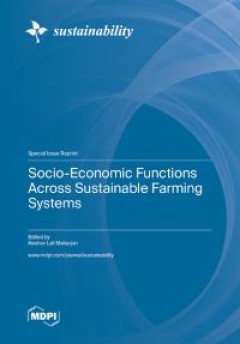
Socio-Economic Functions Across Sustainable Farming Systems
This book aims to present research on Socio-Economic Functions Across Sustainable Farming Systems, specifically on environmental conservation agriculture/climate-smart agriculture, which boosts nature-positive production, raises the welfare of producers; agricultural biotechnology, which contributes to economic and environmental sustainability; community-based extension and marketing of farm pr…
- Edisi
- -
- ISBN/ISSN
- 978-3-0365-7612-1
- Deskripsi Fisik
- 216 hlm.
- Judul Seri
- -
- No. Panggil
- -
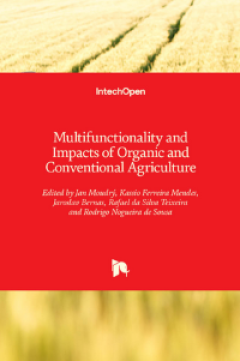
Multifunctionality and Impacts of Organic and Conventional Agriculture
Organic farming aims to produce a number of crops, without the use of synthetic chemicals (pesticides) or fertilizers, while enhancing soil composition and promoting biodiversity. This is a traditional, more permanent type of farming that relies on ecosystem services to maintain the integrity of the landscape while still producing sufficient yields. In addition, conventional farming uses pestic…
- Edisi
- -
- ISBN/ISSN
- 978-1-83880-073-4
- Deskripsi Fisik
- 210 hlm.
- Judul Seri
- -
- No. Panggil
- -

Smart Management of Conservative, Organic and Integrated Agriculture
Sustainable agriculture aims to achieve the goal of food security, also maximizing the socio-economic benefits, and minimizing environmental drawbacks. Farming systems mostly relying on ecological processes and the reduced application of external inputs (fertilizers and pesticides), such as organic farming and integrated farming, can even contribute to the mitigation of global warming and of th…
- Edisi
- -
- ISBN/ISSN
- 978-3-03936-987-4
- Deskripsi Fisik
- 184 hlm.
- Judul Seri
- -
- No. Panggil
- -
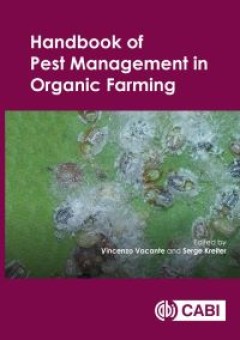
Handbook of Pest Management in Organic Farming
This book is an up-to-date and comprehensive reference covering pest management in organic farming in major crops of the world. General introductory chapters explore the management of crops to prevent pest outbreaks, plant protection tools in organic farming, and natural enemies and pest control. The remaining chapters are crop-based and discuss geographic distribution, economic importance and …
- Edisi
- -
- ISBN/ISSN
- 978-1-780-64500-1
- Deskripsi Fisik
- 577 hlm.
- Judul Seri
- -
- No. Panggil
- -
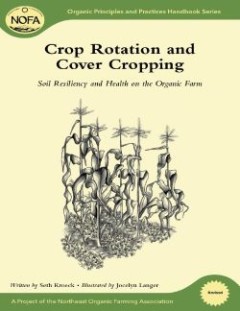
Crop Rotation and Cover Cropping: Soil Resiliency and Health on the Organic Farm
In Crop Rotation and Cover Cropping, you can learn some of the thinking behind—and the actual nuts and bolts of—laying out a rotation for your farm. This volume, part of the NOFA guides, covers: Historical roots of cover-crop techniques, Thinking beyond this season's cash crop (disease and pest reduction, weed suppression, cash vs. cover crops), What is a good rotation? (mapping the farm, g…
- Edisi
- -
- ISBN/ISSN
- 978-1-603-58346-6
- Deskripsi Fisik
- 96 hlm.
- Judul Seri
- Organic Principles and Practices Handbook
- No. Panggil
- -
 Karya Umum
Karya Umum  Filsafat
Filsafat  Agama
Agama  Ilmu-ilmu Sosial
Ilmu-ilmu Sosial  Bahasa
Bahasa  Ilmu-ilmu Murni
Ilmu-ilmu Murni  Ilmu-ilmu Terapan
Ilmu-ilmu Terapan  Kesenian, Hiburan, dan Olahraga
Kesenian, Hiburan, dan Olahraga  Kesusastraan
Kesusastraan  Geografi dan Sejarah
Geografi dan Sejarah